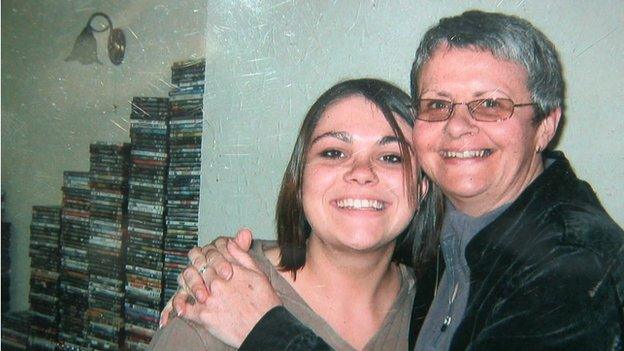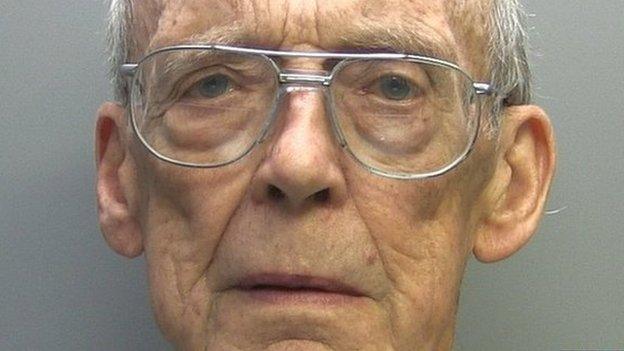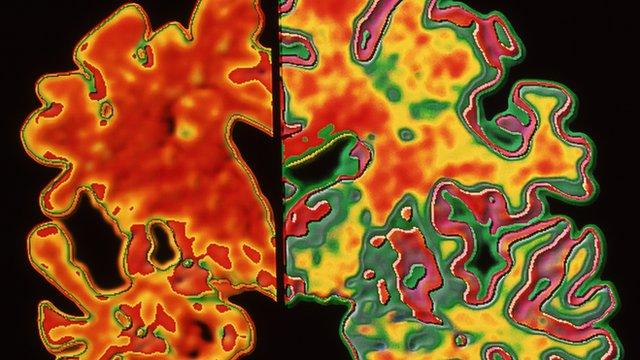Dementia: GPs say patchy services fail patients
- Published
- comments
Carer Stephen Blakeburn says his mother, who has dementia, cannot be left alone anymore
Doctors have raised fresh concerns about the level of support people with dementia and their carers get from the NHS and social services in the UK.
And the Royal College of GPs says until the situation improves, doctors will have to weigh up whether there is any advantage in early diagnosis.
The college was responding to a survey of GPs for the Alzheimer's Society.
The poll suggests some patients are forced to rely on family, friends and unpaid carers due to gaps in services.
The government said dementia training had been given to 600,000 NHS and social care staff in England.
GPs have a key role in co-ordinating care for people with dementia, but the Royal College of GPs says in some places services are collapsing under the pressure of more diagnoses.
The online survey, of around 1,000 family doctors, found they had wide-ranging concerns about levels of care.
Some felt there weren't enough local services to help their patients.
And when these services were not available, a quarter of doctors warned they would be less likely to refer a person with suspected dementia to specialists to make a firm diagnosis.
Agreeing with these concerns, Prof Nigel Mathers, of the Royal College of GPs, called for improvements in the "patchy provision of support services in some areas".
He warned: "Until this can be delivered to all patients, regardless of where they live in the country, GPs will have to continue weighing up the advantages and disadvantages of early diagnosis."
He argued previous evidence had shown that unless a patient's wellbeing was improved by being given a diagnosis, one should not be forced upon them.
'All-consuming battle'
The Alzheimer's Society, the charity that commissioned the survey, said the GPs' answers revealed a "deeply worrying lack of support available from health and social services, with relatives left to pick up the pieces alone".
Jeremy Hughes, chief executive at the society, added: "People can need a lot of help to live well with dementia. Families and friends are a vital source of support but they mustn't be relied on to do everything."
But Stephen Blakeburn, from Darlington, who cares for his mother, said he felt he had been failed by the system.
He said: "Since my mum was diagnosed with dementia, it has been a constant, all-consuming battle to get her the support she needs.
"After two care assessments which led to nothing, I've been left with no option but to drastically cut down my hours at work so I can take care of her.
"I love my mum dearly and want to do everything I can to support her but sometimes it gets too much and it is very overwhelming."
A spokesman from the Department of Health in England, said: "We are already expanding access to named clinicians and dementia advisers to help patients and their families, and giving the option of personal budgets - and we want to see these things being offered across the NHS."
- Published21 February 2015

- Published8 April 2015

- Published3 July 2015

- Published14 September 2014
